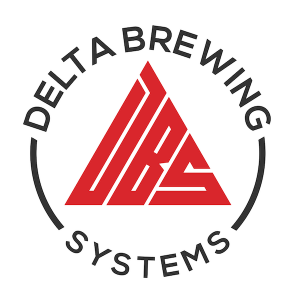Beer is relatively high in calories and carbs with minimal micronutrient content, which may explain why the World Health Organization says, “there is no safe amount of alcohol.” So, is it best to abstain from drinking beer entirely? We take a look at the latest health recommendations and review areas where they’re a bit misleading before calculating how much time drinking might cut from your lifespan.
The Brülosophy Show: Just How Bad Is Beer For Your Health?
Facebook
Twitter
LinkedIn
Sign up to be notified when we publish new content!
Thank you to our sponsors!
Brülosophy is a participant in the Amazon Services LLC Associates Program, an affiliate advertising program designed to provide a means for us to earn fees by linking to Amazon.com and other affiliated sites.











5 thoughts on “The Brülosophy Show: Just How Bad Is Beer For Your Health?”
Glad you put moderate drinking into perspective. Relative risk is a misleading way to look at life. Absolute risk or Number Needed to Harm (which I assume your 4 in 100,000 is NNH) provides better information.
WHO and other experts should concentrate on the actual things killing lots of people. The route to perhaps living longer and living better is eating within your energy balance (total calories in and out once you reach a healthy body composition), aerobic and strength-building exercise (better than any medication by orders of magnitude), not smoking, wearing seat belts, decreasing mental stress, learning something new each day, brushing and flossing, the list goes on…beer avoidance at the 2-a-day level is so far down this list it’s not worth worrying about.
This won’t be a popular opinion, but I kind of think you should stick to your lane of brewing rather than try to editorialize these studies. I’ve been in academic biomedical research since 1994 and when I read the big “all cause mortality” study pre-COVID (from which your weighted relative risk vs standard drinks graph was taken) I realized I do not have the background in epidemiology to critique these studies.
Also as an aside, the drink “size” for this is 10g of ethanol, so we’re talking a pint of really weak beer, much weaker than what North Americans consider a standard beer.
I disagree. I think it’s squarely in Brulosophy’s lane, any every homebrewer’s lane, to consider the health effects of our hobby. And it’s always best to go straight to the source, i.e. peer-reviewed studies in scientific journals.
Granted, there is the caveat that laypeople may not have the training to understand or interpret these studies correctly. They can be dense with unfamiliar stats and terminology. But Martin is not claiming to have a Ph.D. in epidemiology. He strikes me, however, as an intelligent person who knows how to read.
I am not a biochemist. Does this mean I am out of my lane if I read or critique peer-reviewed studies about brewing and hops coming out of Shellhammer’s lab?
You can definitely read them, whether you can critique them depends. I do not feel like I have the expertise to critique large scale epidemiological studies on alcohol use even though I’ve got a BSc in Biochem, a PhD in Microbiology/Immunology, and 24 years academic experience post-grad school because I literally have zero expertise in that epidemiology.
Most people will see “one drink” and think a can of Bud or SNPA or whatever, but those are pretty close to 2 standard drinks on the risk graph; 2 500mL cans of Bud is close to 4 drinks in this study…. That’s why I thought Martin’s background, smart as he is, doesn’t translate to the medical literature.
I know people don’t come to Brülosophy for health advice, but still, that’s where my critique of Martin’s critique was coming from.
RAHAHB